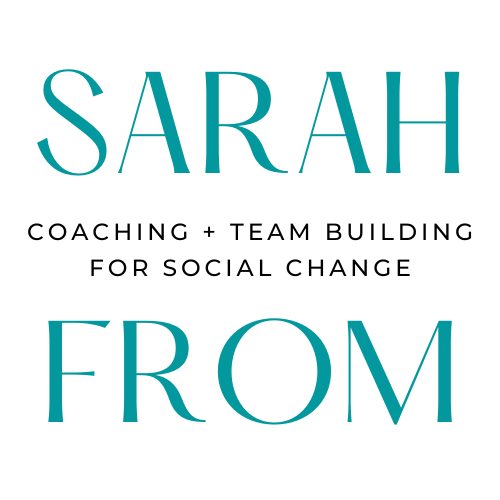"What programs & apps do YOU use to stay on top of it all?"
I get this question all the time.
For me to really adopt a new technology as a favorite and trusted part of my routine, it has to do three things:
- It has to increase my sense of Peace about my work, by helping me reduce worry or stress.
- It has to help me stay Productive by encouraging me to focus on the most important stuff.
- It has to help me Perform at my best -- it can't be so complex it slows me down.
Here are the 6 programs and apps I use daily to keep things running:
- Trello (Task and Project Management). Trello is an elegant and visual platform for task, project and list management. I like it because at its simplest, it is like an electronic version of a white board, or of stickies on a wall. But it has much, much more to offer -- sharing, tagging, checklists, attachments... it is remarkably robust.
- Self Control (Distraction Blocker). Self Control is software for Mac that allows you to assign certain websites to a personal blacklist and then block your own access to them for a particular period of time. I use it for blocking Facebook and Twitter when I need to concentrate - whether for 20 minutes or 8 hours.
- Coffitivity (Focus Enhancer). If you, like me, find you are incredibly productive in the noisy din of a coffee shop, Coffitivity may revolutionize your experience of work at your desk. Visit the website or start up the app and you will be treated to the familiar background noise of a coffee shop -- soft conversations, clatter of dishes, espresso machine, laughter. I've been known to use it in coffee shops when nearby patrons are too loud for my liking.
- Evernote (Digital Capture & Organization Tool). Evernote has a million and one uses, but I use it as a digital filing cabinet. Into Evernote I throw articles, recipes, business brainstorms, books I want to read, vacation ideas, and a million other things. When I need to find something, the easy tagging system and the powerful search make it a piece of cake.
- Streak (Gmail enhancer). Streak's main selling point is that it provides CRM (customer relationship management) within Gmail. But I use it for two of its additional features: 1) I can write an email now and schedule it to send later and 2) I can save "snippets" of canned text to insert into emails rather than retyping the same info over and over (for example, I've created a snippet containing my conference call number, so I don't have to go searching for that every time I want to include it in a message to someone).
- TripIt (Travel Organizer). I'm increasingly on the road and travel documents can be hard to keep at hand. TripIt organizes all of my reservation info (flights, hotel, car rental) and anything else I want on my itinerary in one place. To add something, I simply forward the reservation email to plans@tripit.com and it shows up in my itinerary. I can also easily share itineraries with loved ones.
What are your favorite programs & apps for maintaining your productivity, performance and peace of mind?







